Financial System Adaptability and Resilience
This research group investigates critical aspects of financial system adaptability and resilience. First, it analyses the impact of natural disasters on financial systems. Second, the group aims to investigate the effects of political preferences for the green transition. Third, the group's research analyses the role of culture in economies.
Research Cluster
Financial Resilience and RegulationYour contact

Mitglied - Department Financial Markets
EXTERNAL FUNDING
07.2016 ‐ 12.2018
Relationship Lenders and Unorthodox Monetary Policy: Investment, Employment, and Resource Reallocation Effects
Leibniz Association
We combine a number of unique and proprietary data sources to measure the impact of relationship lenders and unconventional monetary policy during and after the European sovereign debt crisis on the real economy. Establishing systematic links between different research data centers (Forschungsdatenzentren, FDZ) and central banks with detailed micro-level information on both financial and real activity is the stand-alone proposition of our proposal. The main objective is to permit the identification of causal effects, or their absence, regarding which policies were conducive to mitigate financial shocks and stimulate real economic activities, such as employment, investment, or the closure of plants.
01.2015 ‐ 12.2019
Interactions between Bank-specific Risk and Macroeconomic Performance
German Research Foundation (DFG)
Refereed Publications
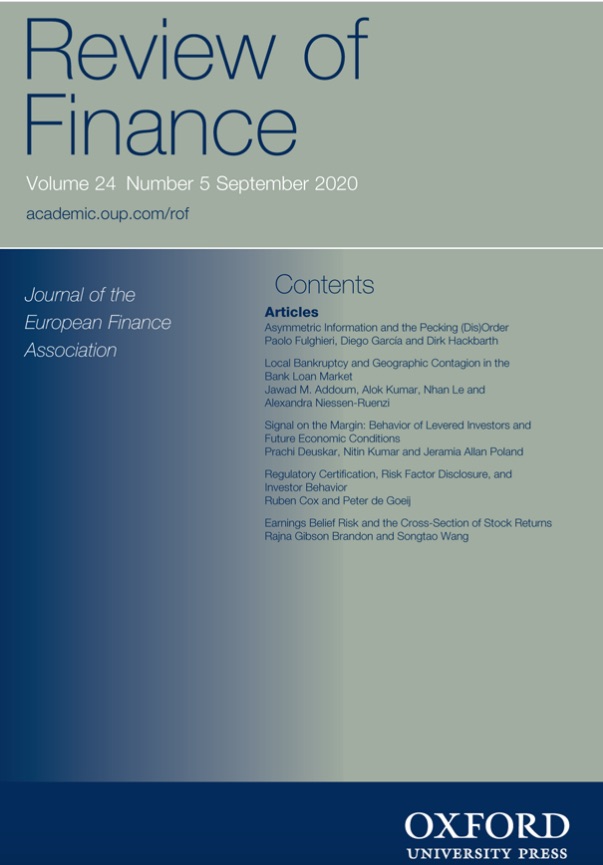
The Impact of Dark Trading and Visible Fragmentation on Market Quality
in: Review of Finance, No. 4, 2015
Abstract
Two important characteristics of current equity markets are the large number of competing trading venues with publicly displayed order books and the substantial fraction of dark trading, which takes place outside such visible order books. This article evaluates the impact on liquidity of dark trading and fragmentation in visible order books. Dark trading has a detrimental effect on liquidity. Visible fragmentation improves liquidity aggregated over all visible trading venues but lowers liquidity at the traditional market, meaning that the benefits of fragmentation are not enjoyed by investors who choose to send orders only to the traditional market.
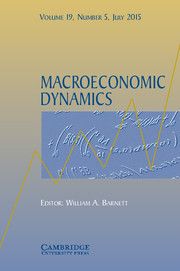
Labor Market Volatility, Skills, and Financial Globalization
in: Macroeconomic Dynamics, No. 5, 2014
Abstract
We analyze the impact of financial globalization on volatilities of hours worked and wages of high-skilled and low-skilled workers. Using cross-country, industry-level data for the years 1970–2004, we establish stylized facts that document how volatilities of hours worked and wages of workers with different skill levels have changed over time. We then document that the volatility of hours worked by low-skilled workers has increased the most in response to the increase in financial globalization. We develop a dynamic stochastic general equilibrium model of a small open economy that is consistent with the empirical results. The model predicts that greater financial globalization increases the volatility of hours worked, and this effect is strongest for low-skilled workers.
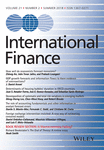
Do Better Capitalized Banks Lend Less? Long-run Panel Evidence from Germany
in: International Finance, No. 1, 2014
Abstract
Higher capital features prominently in proposals for regulatory reform. But how does increased bank capital affect business loans? The real costs of increased bank capital in terms of reduced loans are widely believed to be substantial. But the negative real-sector implications need not be severe. In this paper, we take a long-run perspective by analysing the link between the capitalization of the banking sector and bank loans using panel cointegration models. We study the evolution of the German economy for the past 44 years. Higher bank capital tends to be associated with higher business loan volume, and we find no evidence for a negative effect. This result holds both for pooled regressions as well as for the individual banking groups in Germany.
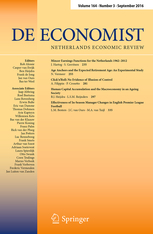
An Empirical Analysis of Legal Insider Trading in The Netherlands
in: De Economist, No. 1, 2014
Abstract
In this paper, we employ a registry of legal insider trading for Dutch listed firms to investigate the information content of trades by corporate insiders. Using a standard event-study methodology, we examine short-term stock price behavior around trades. We find that purchases are followed by economically large abnormal returns. This result is strongest for purchases by top executives and for small market capitalization firms, which is consistent with the hypothesis that legal insider trading is an important channel through which information flows to the market. We analyze also the impact of the implementation of the Market Abuse Directive (European Union Directive 2003/6/EC), which strengthens the existing regulation in the Netherlands. We show that the new regulation reduced the information content of sales by top executives.
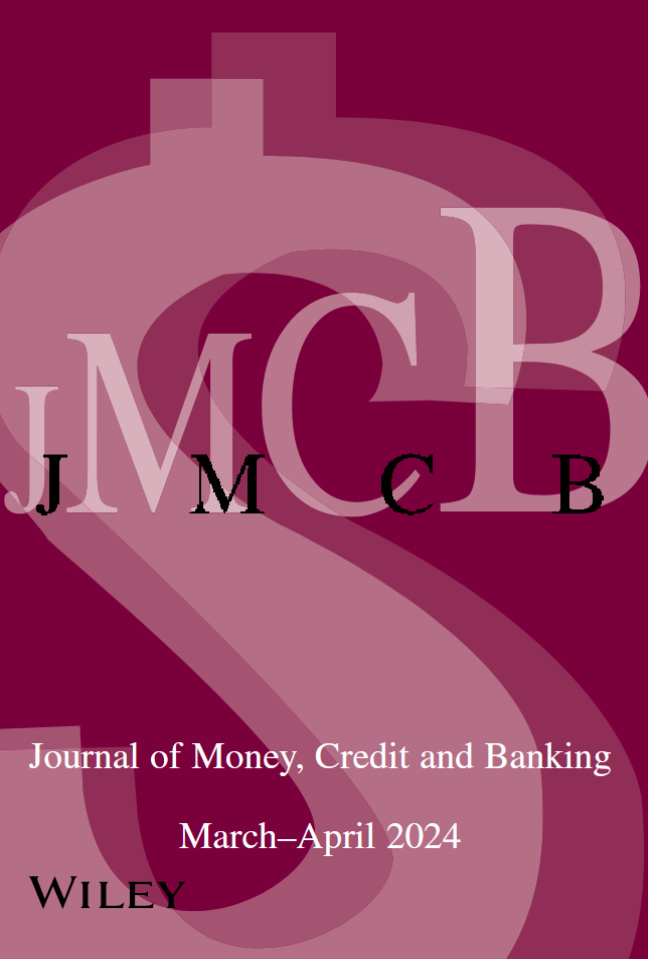
Discussion of De Haas and Van Lelyveld
in: Journal of Money, Credit and Banking, s1 2014
read publicationWorking Papers
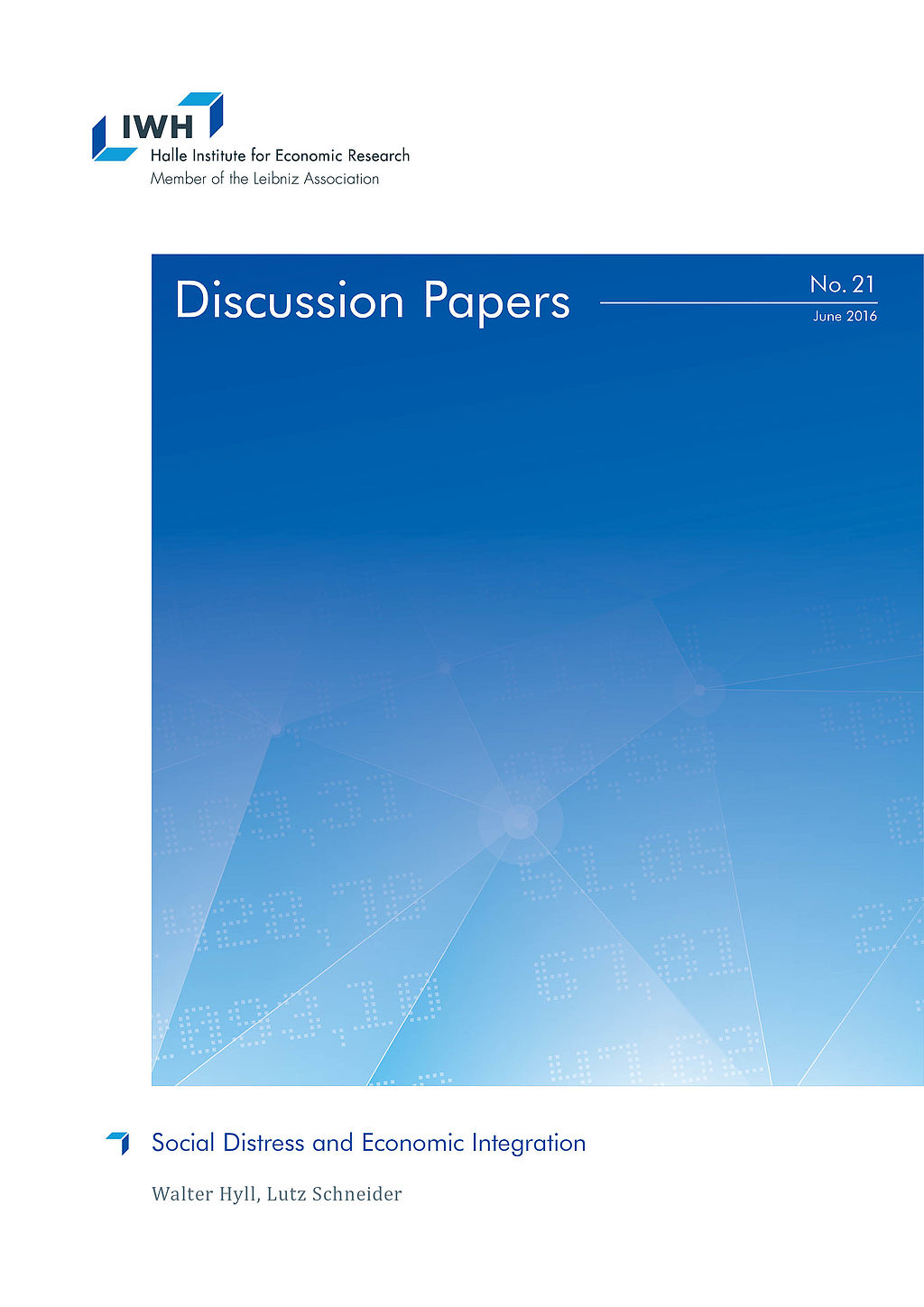
Corporate Governance Structures and Financial Constraints in Multinational Enterprises – An Analysis in Selected European Transition Economies on the Basis of the IWH FDI Micro Database 2013 –
in: IWH Discussion Papers, No. 3, 2015
Abstract
In our analysis, we consider the distribution of decision power over financing and investment between MNEs’ headquarters and foreign subsidiaries and its influence on the foreign affiliates’ financial restrictions. Our research results show that headquarters of multinational enterprises have not (yet) moved much decision power to their foreign subsidiaries at all. We use data from the IWH FDI Micro Database which contains information on corporate governance structures and financial restrictions of 609 enterprises with a foreign investor in Hungary, Poland, the Czech Republic, Slovakia, Romania and East Germany. We match data from Bureau van Dijk’s AMADEUS database on financial characteristics. We find that a high concentration of decision power within the MNE’s headquarter implicates high financial restrictions within the subsidiary. Square term results show, however, that the effect of financial constraints within the subsidiary decreases and finally turns insignificant when decision power moves from headquarter to subsidiary. Thus, economic policy should encourage foreign investors in the case of foreign acquisition of local enterprises to leave decision power within the enterprise and in the case of Greenfield investment to provide the newly established subsidiaries with as much power over corporate governance structures as possible.


















